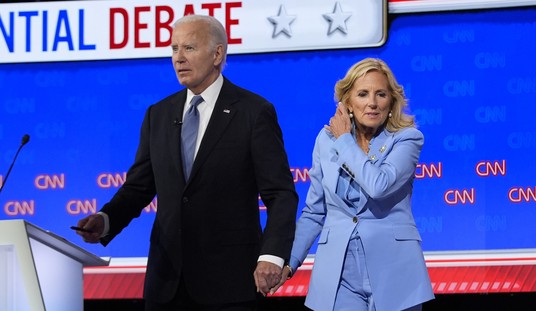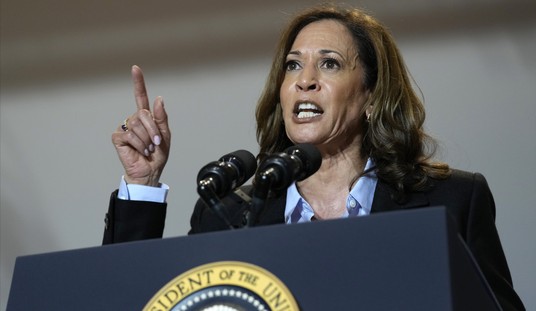A UN General Assembly vote in November gave Israel (and the Palestinians) three months to investigate “serious violations of international … law committed during the conflict in Gaza that broke out in late December 2008.” Israel has now submitted to the UN a 46-page update on its investigations of possible wrongdoings in the war.
The update refutes some of the specific charges of the Goldstone Report, which accuses Israel in particular of war crimes in Gaza, and was the impetus behind the General Assembly vote in the first place. But the document is mainly concerned with establishing that Israel is a responsible democracy whose military is capable of credibly investigating itself, and does so in ways similar to the American, British, Canadian, and Australian militaries.
There is much irony in this, considering the nature of the General Assembly’s vote. Registering 114 in favor, 18 against, and 44 abstentions, in addition to giving Israel and the Palestinians their three-month assignment, it endorsed the Goldstone Report and “requested Secretary-General Ban Ki-moon to send [it] to the Security Council.”
It’s not only that Israel had already been investigating the war (as the 46-page update details) since two days after it ended, while the Palestinian side had not (and still has not) even begun to do so. It’s also that the 114 ayes were not a parade of accomplished democracies that one would count on to uphold international law or investigate violations of it themselves. Of the 114, the only two full-fledged Western democracies are Portugal and Switzerland. The 114 also include the likes of Cuba, Iran, Libya, North Korea, Saudi Arabia, Somalia, Sudan, Syria, and Zimbabwe.
As for the 18 nays — who opposed requiring Israel (and the Palestinians) to submit a report to the General Assembly, or endorsing the Goldstone Report — most are democracies such as Australia, Canada, Germany, Italy, the Netherlands, and the United States. Among the 44 abstainers are democracies like Belgium, Denmark, France, Japan, New Zealand, Sweden, and the UK.
In other words, the reason Israel had to submit a document to the UN maintaining that it is a democracy that does not intentionally kill civilians, takes alleged infractions seriously, and investigates them authentically is because dictatorships that make up the bulk of the General Assembly demanded that it do so.
Thus, the barbarian onslaught on Israel that might be called the “Goldstone process” continues. It began even before Judge Richard Goldstone got into the picture with eight years of shelling Israeli civilian targets by Hamas and other terror organizations from Gaza. When Israel finally moved to defend itself a year ago in what it dubbed Operation Cast Lead, it fought well and dealt Hamas a serious (albeit temporary) blow. Having lost that battle, the nondemocratic side turned to its ally, the UN, to hit back at Israel.
Specifically, it was the Organization of the Islamic Conference that asked the notoriously anti-Israeli UN Human Rights Council in Geneva to send a delegation to Gaza, and thus the Human Rights Council Fact-Finding Mission on the Gaza Conflict (aka Goldstone Commission) was born. As Alan Dershowitz details in a scathing critique of the Goldstone Report, this mission’s mandate was skewed against Israel from the start. All four of its members — including the leader, Richard Goldstone, a prominent South African jurist and war-crimes investigator — had previously made or signed public statements indicting Israel’s military operation in Gaza. They were “commissioned” to condemn Israel, they were predisposed to do so, and they did.
Currently, an intense controversy is raging at the highest level of the Israeli government on whether to appoint a judicial panel to investigate the army’s investigation. Those in favor, led by Prime Minister Benjamin Netanyahu, say that even though the army is preparing a massive, 1000-page, point-by-point refutation of the Goldstone Report, the UN won’t settle for the army’s self-investigation and it won’t suffice to keep Israel out of international legal hot water. Fiercely opposing a judicial panel with anything but limited powers are Defense Minister Ehud Barak, the chief of staff, and others who fear treating the army as untrustworthy, putting it in the dock, and damaging its morale.
As Israel’s 46-page update points out, the military justice systems of democracies like the U.S., UK, Canada, and Australia, which are similar to Israel’s, “have been accepted worldwide as sufficient for investigating alleged violations.” The difference, however, is that Israel is a geopolitically isolated democracy that is forced to fight against parties that have the backing of a 57-country colossus like the Organization of the Islamic Conference (OIC). With its anti-Western compatriots such as Cuba and North Korea, and the many weak dictatorships that are under its thumb, the OIC knows it can use the UN to strike back at Israeli successes on the battlefield.
Israel’s fellow democracies have so far given it some support — quiet, tepid, but better than nothing — in resisting the Goldstone process. They could continue to do so by vetoing or voting down further UN moves against Israel, possibly even including attempts to get it indicted by the International Criminal Court at The Hague. The alternative is to allow the Goldstone process to turn Israel’s gains in the Gaza war into a loss and seriously hamper its ability to fight terror in the future.








Join the conversation as a VIP Member